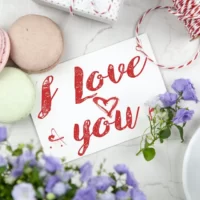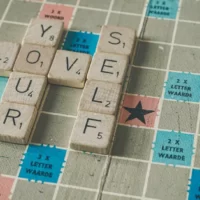When things start to go south in a relationship, it’s easy to place the blame squarely on your partner’s shoulders. But it’s probably not entirely your fault. Normally, one only becomes aware that they might be in the wrong after the hard tide has passed. Therefore, it’s critical to learn how to identify if you are the issue in a relationship before it’s too late.
Signs That You Are The Problem In Your Relationship
You’re Hot-Headed
In three seconds, you can go from 0 to 100 if something bad happens to you and your partner. Whether the issue is big or small, you lash out, mutter mean things, and possibly even throw things. To get out of this, you must become conscious of your actions and alter them. Take into consideration enrolling in an anger management course, or at the very least, learn to take a 20-minute break from heated discussions to allow yourself to calm down.
You Believe That You Are Better Than Your Partner
Your partner doesn’t think you’re the bomb, but you do. When you feel you’re superior, you will develop contempt for your partner and put them down either when you’re alone or when you’re around others. You’ll make an effort to diminish your partner, and someone can only put up with that kind of nasty behavior for so long.
You Avoid Conflict
You’re the life of the party when life is rainbows and puppies — but when conflict arises, you run for the hills. Problem-solving is not really one of your skills. But life isn’t always sunshine, and if you avoid conflict, you might completely shut down, which will make your partner uncomfortable or upset. It’s not a good thing if your partner feels he can only interact with you when everything is going well.
You Fail To Hold Yourself Accountable
Your partner needs to understand that you care about your relationship much more than just trying to always be right. However, when you’re the issue in the relationship, your partner may frequently feel rejected, invisible, and unheard. It might be that you struggle to accept that you are mistaken. There are numerous ways to solve a problem without apologizing, Kavita advises if that’s the case. There are other acceptable ways to express your regret and assure your partner that you won’t make the same errors again.
You Prioritize Your Own Requirements And Desires First
Are you constantly relying on him to be understanding when you suddenly need a girls’ night out or change your plans? Are his needs last on your list of priorities, coming after ensuring your own happiness?
He Should Improve You On The Inside, According To You
You expect him to inspire you to become a better human, but the only person who can inspire you to be better is you. You blame him for your inertia and lack of success, but the truth is that nothing he says or does will inspire you. Motivation originates internally, not externally.
You Have Temper Issues
If you feel like you unduly ill-treat your partner by yelling at them too much, cursing them, or resorting to violence or name-calling in the relationship, then therein lies the answer to how to tell if you are a problem in your relationship. That you struggle to control your emotional outbursts and that this shows in the way you treat your partner badly is a very clear and strong indicator.

You Don’t Accept Accountability For Your Deeds
You may be a little biased or irrational if everything is always your partner’s fault and never your own. Relationship disaster is guaranteed if you can’t say “I’m sorry,” and instead choose to place the blame for your behavior on another person.
Your Friends Are Speaking In Your Ear Quietly
They might be the ones ruining your relationship if your close friends are constantly telling you that “you could do so much better.” Consider this question: Does this happen frequently? How well do these close friends sustain their own relationships? Perhaps it’s time to stop listening to your loved ones.
What To Do If You Are The Problem In Your Relationship
Work On Cultivating Better Self-Awareness
You may now realize that your intuition was correct all along and that you are the main cause of your relationship problems because you started out with a hunch that “I feel like I’m the problem in my relationship” motivated you to look for solutions. Now is the time to delve further and develop greater self-awareness about your feelings and how they affect how you react to various circumstances in your relationship.
Know That It Doesn’t Make You Unlovable
When you are the issue in the relationship and are aware of it, it can be extremely damaging to your self-worth and sense of self-esteem. For instance, you might wonder why your partner is even putting up with you if you realize that the root of most of your relationship issues is that you get angry easily and tend to lash out at them.
Practice Honest And Clear Communication In Your Relationship
Now that you know the answer to the crucial question, “What to do when I’m the problem in my relationship,” you can turn your attention to another important one: “How do I know if I am the problem in my marriage/relationship.” As with most other issues, this too can be dealt with by learning how to communicate better with your partner.
Give them the opportunity to express how they may have been impacted by certain facets of your personality or your emotional reactions to specific circumstances. When they speak, pay close attention and keep an open mind to see what adjustments you can make to repair the harm.
Redefine Your Relationship Boundaries
“What am I doing incorrectly in my relationships?” You’ll probably discover through this investigation that your relationship’s boundaries are either vaguely defined or nonexistent. There’s a good chance you’re unintentionally crossing your partner’s boundaries or that you’ve failed to uphold your own. A codependent relationship might have resulted from this.
It’s advisable to reevaluate your relationship boundaries and, if necessary, redefine them now that you’re trying to fix the problems in your relationships. For instance, if you’re someone with an ambivalent anxious attachment style, there is a strong possibility that you not only allow your partner to walk all over you but also deny them their space in the relationship out of the fear that they may leave you.
Seek Professional Help To Weed Out Underlying Issues
Coming to terms with the realization that “I feel like I’m the problem in my relationship” is one thing; understanding why that is quite another. Finding the root cause of your own triggers can be difficult, even if you can recognize the indicators that something is amiss in your relationship and the emotions that set off problematic behavior patterns.
















